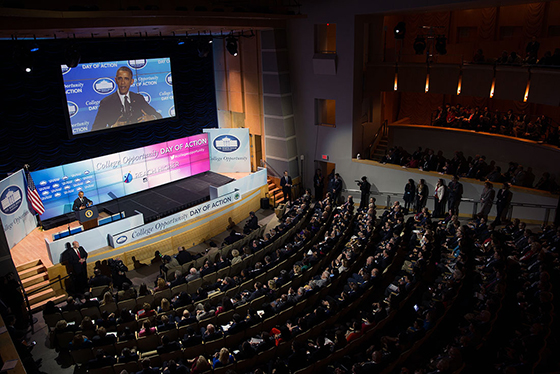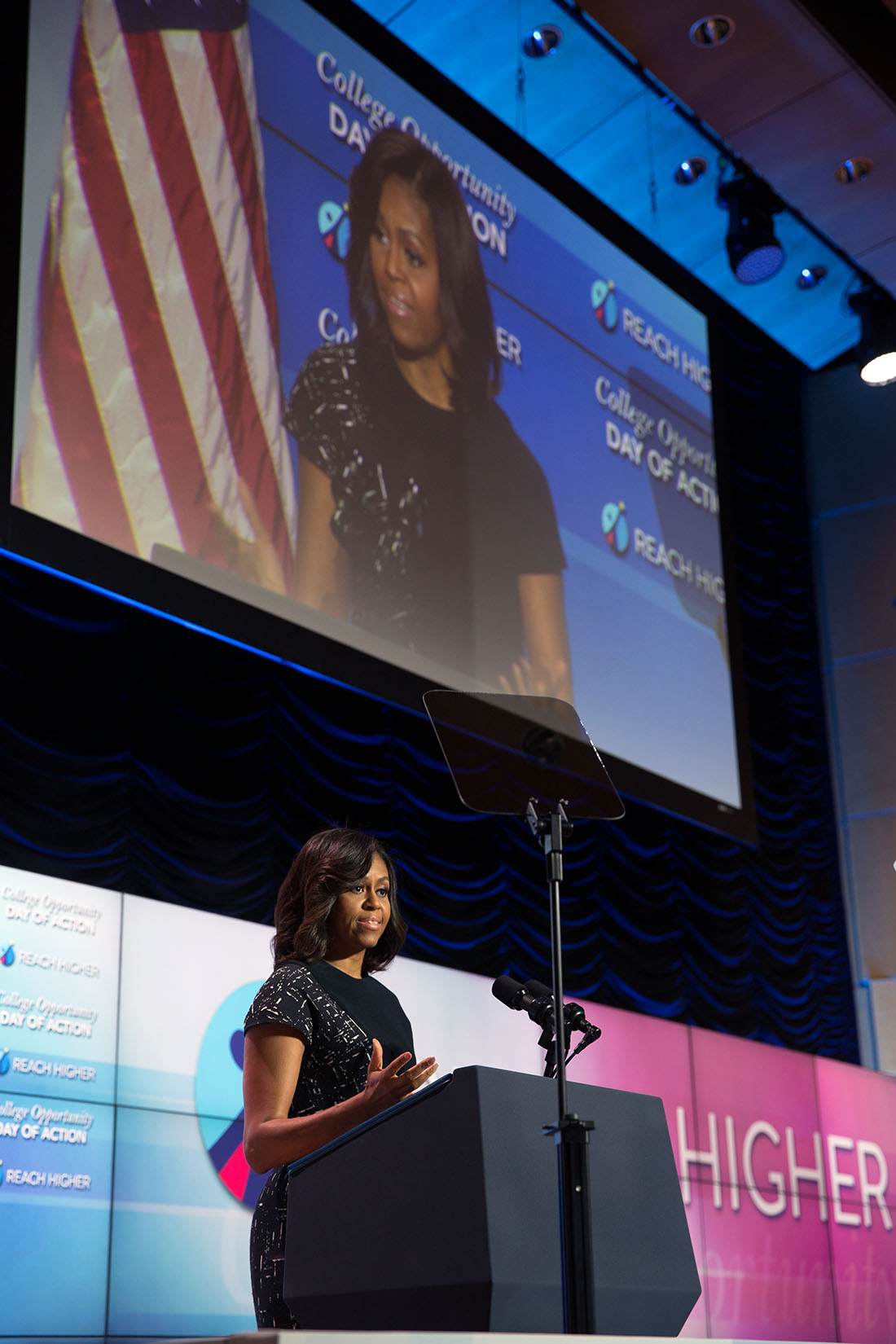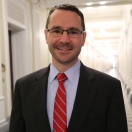
The key to success in today’s economy is higher education, which is why expanding opportunity for more students to enroll and succeed in college, especially low-income and underrepresented students, is vital to building a strong middle class.
Earlier today, President Obama, Vice President Biden, and First Lady Michelle Obama joined college presidents and education leaders from around the country to announce 600 new actions to help more students prepare for and graduate from college.
President Obama talked about how our higher education system is one of the things that makes America exceptional:
There’s no place else that has the assets we do when it comes to higher education. People from all over the world aspire to come here and study here. And that is a good thing.
America thrived in the 20th century because we made high school free. We sent a generation to college. We cultivated the most educated workforce in the world. Along with our innovation mentality, our risk-taking, our entrepreneurial spirit, it was that foundation that we laid -- broad-based, mass education -- that drove our economy and separated us from the rest of the world.
But the President explained that other countries have since improved the quality of their education, seeking to out-compete the U.S:
I don’t want businesses to have to look anywhere other than the United States of America. I want to make sure we lead the world in education once again, not just because it’s right to help more young people chase their dreams, but because it’s critical to our economic future.
The actions taken today by college presidents, education leaders, non-profits, and other organizations follow on the heels of the White House's first College Opportunity Summit in January, and will reach hundreds of thousands of students in the coming years and focus on one of four areas:
- Building networks of colleges focused on promoting completion
- Creating K-16 partnerships around college readiness
- Investing in high school counselors as part of the First Lady’s Reach Higher initiative
- Increasing the number of graduates in STEM fields
During the First Lady’s remarks, she noted how too many kids go through high school with too little guidance on how to get into college, as well as the alarming fact that our national average is only one counselor for every 471 students:
They don’t know what classes to take, or how to prepare for the SAT or the ACT. No one helps them decide which colleges to apply to. No one reviews their applications. And plenty of kids have no idea that they’re eligible for financial aid, so they assume they just can’t afford college, and they don’t even bother to apply.
The First Lady pointed out that the commitments announced today are a big step in the right direction that students get the resources they need:
Universities across the country have pledged to create college and career-readiness courses in their masters programs for school counselors. School districts are partnering with nonprofits and colleges to provide training for counselors once they’re in our schools. Nonprofits are stepping up to improve student-and-counselor ratios and bringing recent graduates into schools to serve as role models and mentors.
And these are just the highlights. Altogether, these commitments represent tens of millions of dollars that will impact hundreds of schools and countless students. These are outstanding commitments, and we need more efforts like these all across this country. Every one of us has a role to play.
The Vice President wrapped up the Summit by thanking all those teachers and educators who help students navigate the "veritable labyrinth" that is the college process:
That's where a significant number of young, qualified, bright students find themselves today. Most don't even know what they don't know. That's where you all come in. That's why I’m here to thank you because making the commitment for them. ...
I’m Vice President of the United States, he is President of the United States. We would not have made it. I don’t care how bright you are -- and I have not met anybody brighter than the President -- without somebody helping them find the way. But for financial assistance, none of us would be standing here today, among the four of us. So, again, thank you for the commitments you’re making today.
"Your commitment to use data and technology to improve college graduation rates, to better identify, provide help for students who are otherwise likely to find access for financing for them," the Vice President said. "You’re also making it easier for community colleges -- students to transition to four-year schools without losing a step."
During President Obama’s remarks, he concluded by reminding us that improving college opportunity is a collective effort with rich rewards for the country:
If all of us work together -- teachers, parents, nonprofits, corporations, school districts, university system -- if we make sure they remain the best-educated generation in American history, there is no limit to what they can achieve, there’s no limit to what this country can achieve.
Learn More:




